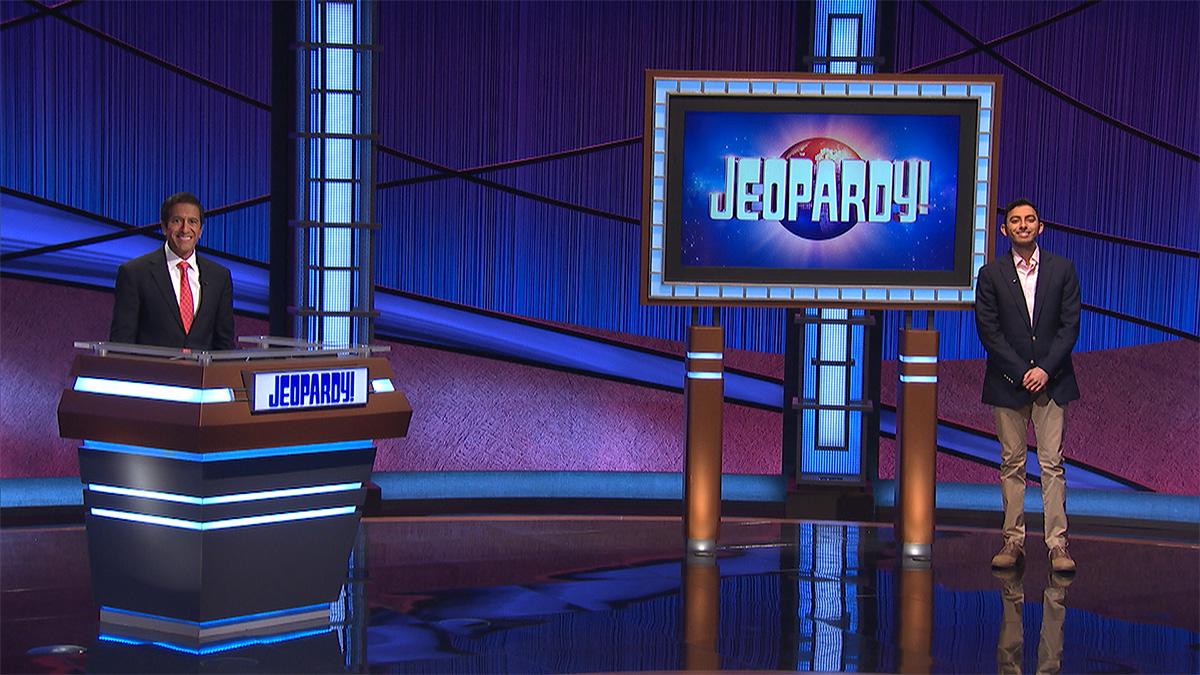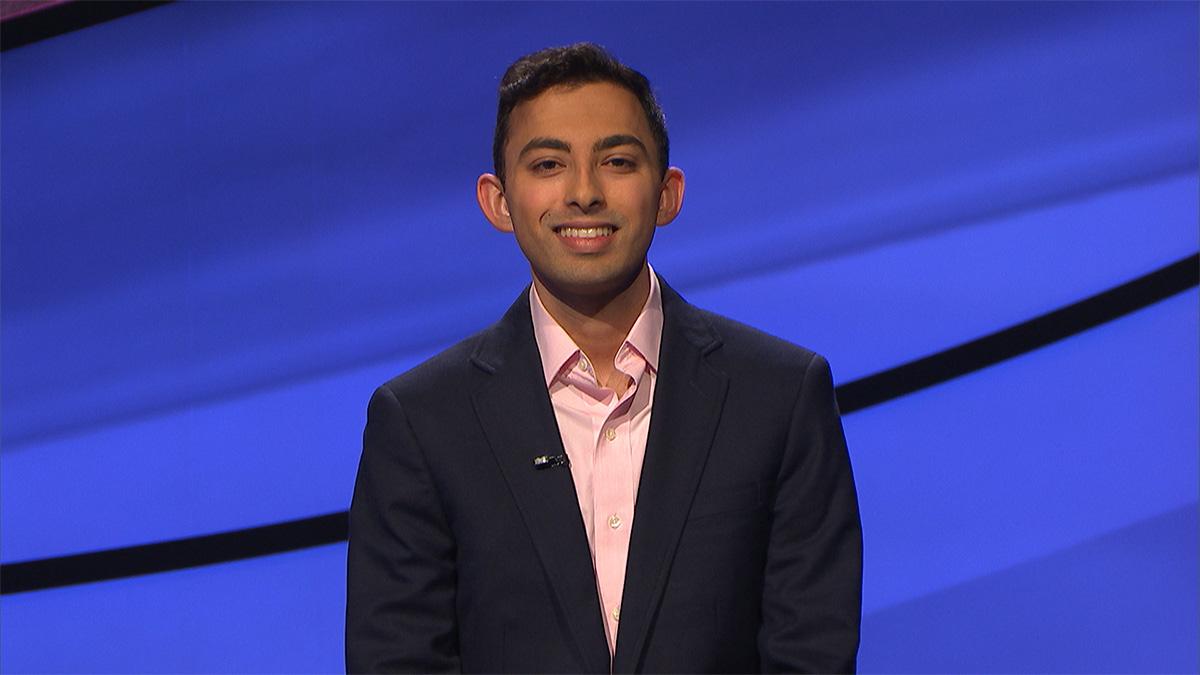Clue: A biomedical engineering student at Emory University and Georgia Tech who will be one of three contestants on the game show Jeopardy! July 7.
Correct response: Who is Keshav Shah?
“Competing on Jeopardy! is something that I feel very fortunate to have been able to do. It's obviously a high-stakes affair and is exhausting, because they tape an entire week's worth of shows in one day. However, the entire Jeopardy! crew was super energetic and friendly and they helped make the experience memorable,” said Shah, a first-year Ph.D. student in the Wallace H. Coulter Department of Biomedical Engineering at Georgia Tech and Emory University.
“My experience was a bit different than usual because of Covid-19 protocols, but I loved getting to meet the other contestants and hear their stories. They're all so bright and come from such different backgrounds,” he said.
Shah has been trying for a few years to make it through the highly competitive screening process to appear on Jeopardy! Of the thousands who try, only about 400 make it to the stage each season. He passed the online test in the fall and had an audition over Zoom earlier this year. It wasn’t the first time he’d made it that far in the process: he passed the test and auditioned in-person for the College Championship and the regular show as a second-year undergraduate at Virginia Tech. Aspiring contestants only remain in the active pool for 18 months after an audition, however, and he never got the call back then.
This time, it was only a few weeks before producers invited him to Los Angeles for a taping.
“Being on stage honestly feels a bit surreal, and it is very different compared to playing along at home,” Shah said. “It's so easy to sit at home and say, ‘Wow, I can't believe none of the contestants answered that clue correctly,’ but Jeopardy! is nerve-wracking, and things on TV sometimes don't always go smoothly. The host may misspeak, or the judges may have to make a lengthy ruling on an answer. All those little things can interrupt what viewers perceive as a constant flow of the game.”
There’s also that famed buzzer — which Shah called the “great equalizer.” Contestants who buzz in before the host finishes reading the clue are locked out for a fraction of a second. That’s all it takes to lose a shot at providing a response. Like many contestants, Shah said he spent a great deal of time practicing his buzzer technique at home with a clicker pen.
In a fun twist, Shah’s appearance coincided with the guest-hosting stint of fellow Atlantan and CNN medical correspondent Sanjay Gupta.
“His easygoing personality was great for the show. He is definitely someone I admire and have looked up to for his work as a medical professional and correspondent for CNN,” Shah said. “Meeting him was a dream come true.”
Shah works with Professor Johnna Temenoff, where he is focused on biomaterial- and stem-cell-based strategies to treat muscle degeneration after rotator cuff injuries.
Of course, there’s one answer we don’t know: how well Shah did in his turn behind a Jeopardy! podium. We’ll all have to watch July 7 to find out.
UPDATE: Shah started slow but stormed to the lead and entered Final Jeopardy! ahead of his two competitors. However, he wagered almost all of his money and missed the final clue, so he ended the game in third.
Latest BME News
Jo honored for his impact on science and mentorship
The department rises to the top in biomedical engineering programs for undergraduate education.
Commercialization program in Coulter BME announces project teams who will receive support to get their research to market.
Courses in the Wallace H. Coulter Department of Biomedical Engineering are being reformatted to incorporate AI and machine learning so students are prepared for a data-driven biotech sector.
Influenced by her mother's journey in engineering, Sriya Surapaneni hopes to inspire other young women in the field.
Coulter BME Professor Earns Tenure, Eyes Future of Innovation in Health and Medicine
The grant will fund the development of cutting-edge technology that could detect colorectal cancer through a simple breath test
The surgical support device landed Coulter BME its 4th consecutive win for the College of Engineering competition.









